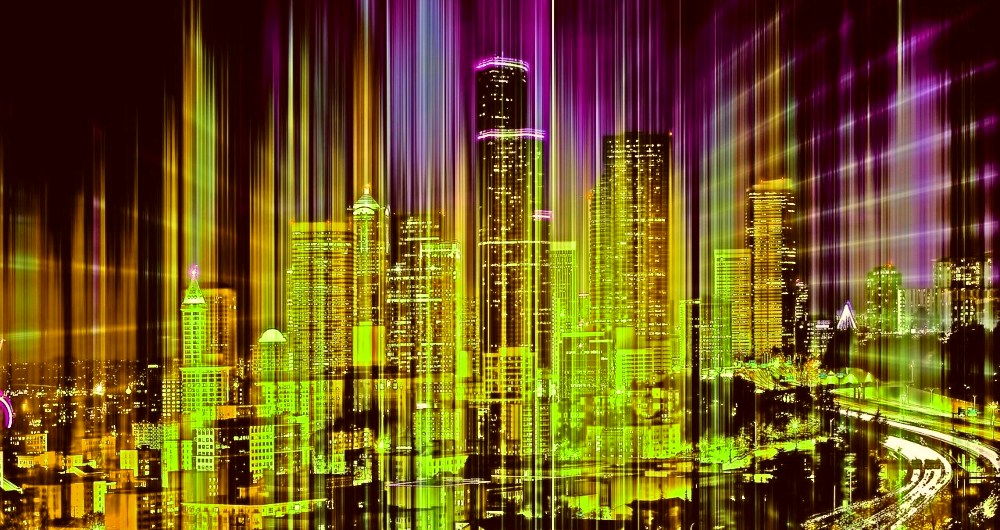
Joe Biden’s image-tenders did well in fashioning the vague slogan, Build Back Better. “Build” is a grand American concept of building a nation, constructing a start-over new life. “Back” has a comforting nostalgia, like Again in MAGA. “Better” is in the eye of the voter, suitably amorphous.
Seattle, too, wants to build back better, largely meaning more equitably. Equity is a concept as broadly popular as it is ever-elusive in such an atomistic country, where the value of liberty has usually triumphed over its sibling rival, equality.
It’s also hard to imagine that a fluid, authority-suspecting city such as Seattle could ever settle on a theme, a dominant, driving vision for the city emerging from the pandemic’s grand recalibration. Nonetheless, I have a few contenders in mind. After all, we have had some unifying goals in the past (timber town, war town, Boeing town, port gateway, techopolis). The envelopes, please.
- Stockholm West. Free-market socialism of the Scandinavian flavor would seem to be the current political consensus for Seattle, adding touches such as pre-school, free college, subsidized day-care, and hazard-pay for clerks. The Scandinavian version avoids state-led industries and encourages globalized, high-value startup companies. Seattle, where Amazon and venture capital firms flourish, is heading down this path, even if the rest of the country is not.
- Cambridge West. Seattle with its major research university, large community colleges, and distinctive smaller universities like Seattle U. is really a college town. It’s unusual for a large state university to be in a city, since they mostly go to smaller towns (Boulder, Tucson, Urbana, Eugene) to escape the dangers of big cities for young students. And Seattle has the usual other attractions for students: good music, bookstores, nearby mountains, internships. (And a big drawback: overpriced housing.) This model meshes well with brainy startups, biomedicine, and the creative economy.
- A City Upon a Hill. This Biblical phrase (referring to Christian charity, not pride) was used as Boston was settled in 1630. It fits well with northern-tier American cities with stiff moral fiber, abolitionist zeal, and missionary impulses (such as the Gates Foundation and environmental groups). The religious underpinning has long faded from this formula, but high-mindedness has many manifestations hereabouts.
- Tech Town. Given that technology drives the local economy, what about having it drive the civic sector. Much could be done: surveillance cameras for crime control, autonomous vehicles and drones replacing 19th century transportation, robotics at City Hall, individualized distance learning for schools. Trouble is, cities such as Seattle and San Francisco fear the size and intrusiveness of these tech giants. But if these tech companies start solving civic problems, they might ease these image problems and make their employees feel less alien. An example: Walkscore, invented over one hackers’ weekend in Seattle, rewarded and shifted urbanist real estate values.
- Asian Gateway. Commercial cities such as Venice (trading to the Levant), Amsterdam (capturing the Baltic trade), and New York grew prosperous by standing across major trade routes. Seattle’s origin story touted the short route to Asia, by rail and ship and plane, and it captured the Alaska trade. Seattle prior to the international workforce at tech companies was a very white city, and it’s far from large markets, but just as Miami is the gateway to South America, could Seattle be the nation’s Pacific gateway?
- Greenville. The city aligns with nature, loves to garden, to get out and hike. Climate change gives an urgency and an international dimension. Technology startups can assist by inventing new energy-saving devices. Already one can see leading technology figures such as Bill Gates and Jeff Bezos shifting to these realms.
- Crossover City. The Native name for what became Pioneer Square was “little crossing over place,” where a path led from Puget Sound to Lake Washington. Given the wide range of nation-leading specialties in the local economy (software, e-commerce, retail, gaming, biotech, trade, hospitals, research, AI, coffee) and the fact that breakthroughs come from the interstices of different disciplines, maybe this crossing-over is the Seattle brand. Some local institutions such as the U.W. are called upon to smooth egos for large research projects, as are our global architectural firms. Add the interdisciplinary institutions (such as the New York Institute for the Humanities at NYU) and seed this growth.
And the winner is….?
Seattle is still a realm where individualists come to do their thing, to escape restrictions, and to restart their lives. So the likely winner is Muddletown, where many of the above paradigms jostle each other for prominence. Not the best branding idea, true, but a sure sign of a diverse, buzzing modern city-state.
Discover more from Post Alley
Subscribe to get the latest posts sent to your email.

“The religious underpinning has long faded from this formula, but high-mindedness has many manifestations hereabouts.”
The local urbanists practice a false religion. Their godhead is Jane Jacobs, their bible is The Death and Life of Great American Cities, and their fetishized icons are large clusters of small apartments and mass transit. It is not high-mindedness — it’s a faith-based zealotry masking commercial imperatives.
Great write, David – all of us that have viewed this maturation are LOL
Seattle is a small town that got big and wasn’t ready. In the ’50’s we were looking for an image bigger than Boeing’s city…….hence the World’s Fair. We were a city of blue laws -we were not cosmopolitan. Then the ’90’s happened and we still are “Muddled”……..
Footnote on the World’s Fair. Seattle was eager to change the company-town narrative about Boeing, and didn’t want the 1962 Fair to be about technology. Along came Sputnik and the federal money for space and future technologies, and that shifted the theme of the Fair. Sen Magnuson steered the Fair in this new direction (math and science education to catch up with the Russkies) and got the federral dollars flowing.